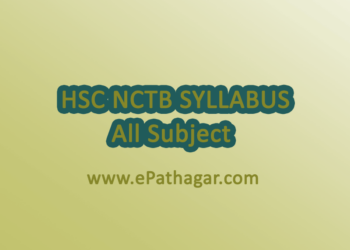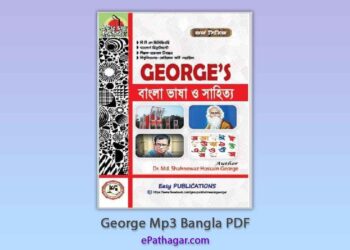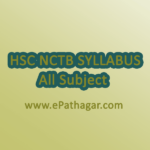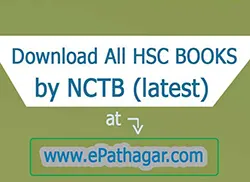Markus Zusak’s The Book Thief Book PDF presents a poignant tale set in Nazi Germany, exploring the power of words, resilience in the face of adversity, and the enduring strength of the human spirit. Through Death’s perspective, “The Book Thief” offers a unique view of World War II, focusing on Liesel Meminger’s life.
Brief Overview of the Plot The Book Thief Book PDF
After her brother’s death and her mother’s disappearance, Liesel lives with foster parents Hans and Rosa Hubermann. Liesel finds solace in books amidst the war, forming unlikely friendships, including one with Jewish refugee Max. As Liesel navigates the challenges of growing up in a war-torn country, she discovers the transformative power of storytelling.
Analysis of Main Characters
As the narrator of the story, Death provides a unique perspective on human nature and the impact of war. Through his observations, readers gain insight into the fragility of life and the resilience of the human spirit.
Liesel, the story’s heart, copes with loss and finds hope through her love for books. Her journey from innocence to understanding mirrors the broader themes of the novel.
Hans is Liesel’s compassionate foster father, whose kindness and warmth provide a sense of stability amidst the chaos of war. His relationship with Liesel is a central focus of the story, showcasing the power of love and empathy.
Liesel’s foster mother, Rosa, seems stern but holds deep affection and unwavering strength amid adversity.
Themes Explored in “The Book Thief Book PDF”
Power of Words
The novel’s central idea is that words possess the dual power to heal or harm souls. Liesel’s love for books becomes a form of resistance against the oppressive regime, highlighting the subversive nature of storytelling.
Humanity in Times of Adversity
Despite the horrors of war, The Book Thief Book celebrates the resilience and compassion of the human spirit. Acts of kindness, however small, serve as beacons of hope amidst the darkness.
Loss and Grief
Death is a constant presence in the novel, reminding readers of the fragility of life and the inevitability of loss. Through Liesel’s experiences, the novel explores the complexities of grief and the healing power of connection.
| Download other books from these links |
Water for Elephants Summary & Book PDF
The Catcher in The Rye Novel Book PDF
Importance of Friendship
Liesel’s friendships with Max, Rudy, and others illustrate the transformative power of human connection. In a world torn apart by hate, these relationships offer moments of joy and solidarity.
During World War II, the novel takes place in the fictional town of Molching, Germany. The stark backdrop of war provides a sense of urgency and tension, underscoring the challenges faced by the characters.
Narrated by Death himself, the novel offers a fresh and unconventional perspective on historical events. Death’s observations are both haunting and insightful, providing readers with a deeper understanding of the human experience.
Author’s Writing Style
Markus Zusak’s prose is lyrical and evocative, filled with vivid imagery and poignant metaphors. His use of language is both captivating and immersive, drawing readers into the world of “The Book Thief Book” with each turn of the page.
Critical Reception and Awards
The Book Thief PDF received widespread critical acclaim upon its release, with praise for its lyrical prose, memorable characters, and powerful themes. It has won numerous awards, including the Michael L. Printz Honor and the Kathleen Mitchell Award.
Brian Percival directed the film adaptation of The Book Thief PDF in 2013, starring Sophie Nélisse as Liesel and Geoffrey Rush as Hans. While the film received mixed reviews, it introduced the story to a wider audience.
Impact on Readers The Book Thief Book PDF
“The Book Thief” has resonated with readers of all ages, inspiring discussions about the power of storytelling, the human capacity for kindness, and the enduring legacy of the Holocaust. Long after the final page is turned, its themes continue to provoke thought and reflection.
Educational Significance
Schools frequently include the novel in Holocaust education, offering students a unique perspective on this historical chapter. Its themes of empathy, resilience, and the power of literature make it a valuable tool for fostering meaningful discussions in the classroom
While critics have widely praised “The Book Thief PDF,” some have raised concerns about its portrayal of historical events and its treatment of sensitive subject matter.
Personal Reflections and Connection with The Book Thief Book PDF
For many readers, “The Book Thief PDF” holds a special place in their hearts, evoking personal memories and emotions. The universal themes of love, loss, and seeking meaning resonate globally, crossing cultural and generational boundaries.
The Book Thief Book PDF is more than just a novel; it is a testament to the enduring power of storytelling and the resilience of the human spirit. Its vivid characters, lyrical prose, and powerful themes remind us of empathy, compassion, and written words’ significance in darkness.
FAQs
Is “The Book Thief” based on a true story?
No, “The Book Thief” is fictional but set against real historical events, including World War II and the Holocaust.
What age group is “The Book Thief” suitable for?
While “The Book Thief” is often suggested for young adults, its themes suit readers of all ages.
What makes “The Book Thief” unique among Holocaust literature?
The novel’s unique narrative style and exploration of storytelling distinguish it from other Holocaust literature.
Why is Death portrayed as the narrator of the story?
Death narrates The Book Thief offering a unique perspective on human nature and the impact of war. His observations offer insight into the fragility of life and the resilience of the human spirit.
What lessons can readers take away from “The Book Thief”?
The Book Thief imparts lessons on the power of words, empathy, and the resilience of the human spirit.













This Post Has One Comment
[…] Also read: The Book Thief Book PDF […]